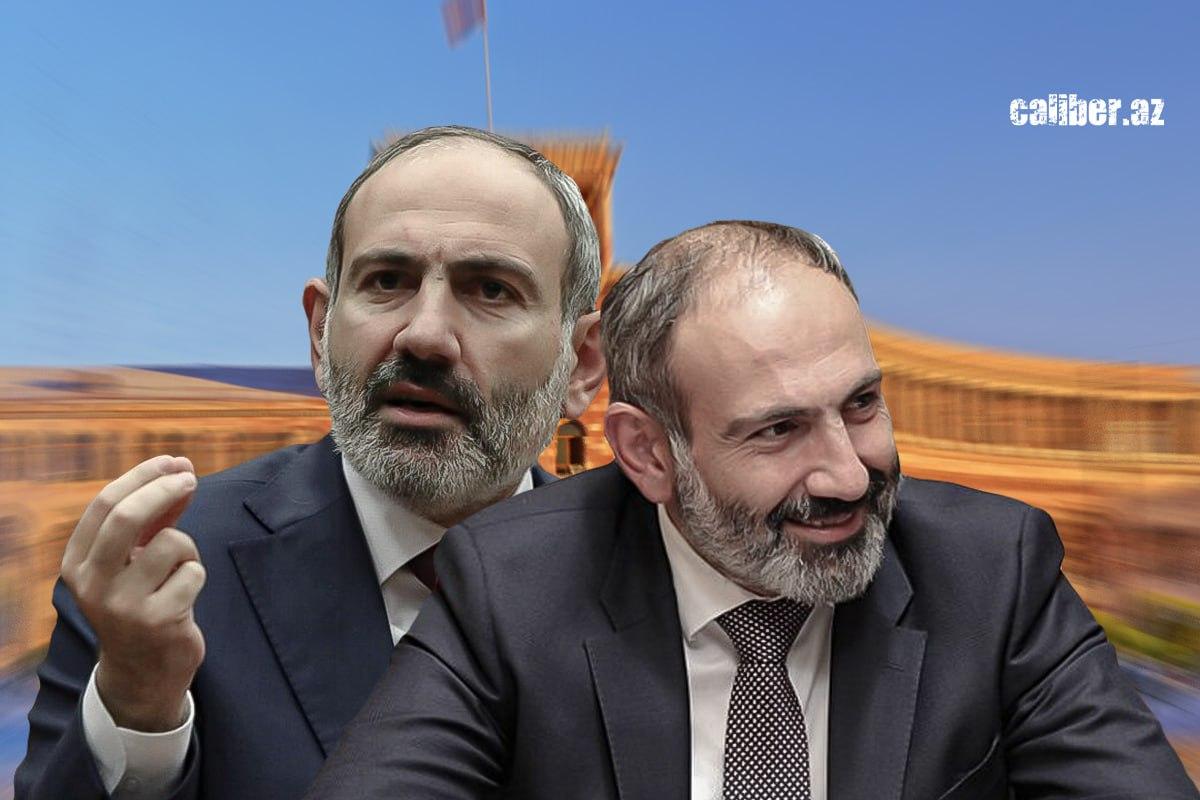Pashinyan’s art of empty talk: Stump oratory with little substance Yerevan’s foot-dragging stalls peace process
Armenian Prime Minister Nikol Pashinyan's recent statements at the World Armenian Summit on September 18 reveal a curious blend of rhetoric and inaction. Pashinyan declared that “Armenia does not aim to reclaim lost territories through military means and has no territorial claims on any country.”
“Yes, we have occupied territories, more than 200 square kilometres,” Pashinyan admitted, “but the Armenian government does not face the task of returning these territories militarily.” At the same time, he reiterated his well-worn assertion that Armenia recognizes the territorial integrity of all countries in the region.
It's clear that Pashinyan’s comments about Armenia’s supposed commitment to peace are intended to placate the international community. By projecting an image of a nation dedicated to stability, Yerevan seeks to portray itself as a peacemaker in the region.
Pashinyan's remarks on military arms purchases further illustrate this narrative. He suggested that Armenia’s ongoing military reforms, which are being closely observed by Azerbaijan, should not be seen as a sign of hostility. “Countries are entitled to bolster their defences under the UN Charter,” Pashinyan stated.
While the right of nations to enhance their military capabilities is well-established, it becomes problematic when such actions are coupled with expansionist or revanchist tendencies. In Armenia’s case, the ongoing military buildup suggests a more complex agenda behind the façade of peace.

Pashinyan attempted to bolster his position with references to the UN Charter. However, this rhetoric is undermined by Armenia's 30-year disregard for four UN Security Council resolutions demanding the unconditional withdrawal of Armenian troops from Azerbaijani territory. This history of non-compliance has understandably led Azerbaijan to view Armenia’s ongoing arms buildup as a security threat, heightening regional tensions.
Pashinyan’s claims that Armenia has no territorial ambitions appear disingenuous, especially in light of the country’s refusal to engage constructively in negotiations with Baku and its avoidance of amending its constitution, which still harbors territorial claims against Azerbaijan. His statements about not pursuing military means to reclaim “occupied territories” are further muddled by his contradictory references to the “200 square kilometers” of disputed land, casting doubt on Armenia’s true intentions.
The situation is exacerbated by Armenia's recent acquisitions of advanced weaponry from the United States, India, and France, amidst persistent revanchist rhetoric from Yerevan. This arms buildup, coupled with ambiguous statements about territorial claims, raises concerns about potential military provocations in the region.
Pashinyan claimed that Yerevan has no intention of using military force to reclaim “the occupied territories of more than 200 square kilometers,” citing agreements on demarcation with Azerbaijan as a means to resolve the issue through negotiation. However, this statement raises questions about what exactly constitutes these "occupied territories." Pashinyan appears to be contradicting himself; while he frequently asserts that Armenia does not have territorial claims against other countries, he simultaneously refers to the 200 square kilometers as occupied Armenian land. This contradictory stance seems aimed at portraying Azerbaijan as the aggressor in the eyes of the international community.
Pashinyan's behavior took a dramatic turn when he launched a bold critique of the Collective Security Treaty Organization (CSTO) during the forum, attacking Russia in the process. He claimed that the CSTO poses a threat to Armenia's security, future existence, and sovereignty.
“Armenia has frozen its participation in the CSTO because this structure has created threats to the republic's sovereignty,” Pashinyan declared, adding that Armenia is approaching a “point of no return” in its relations with the organization.

Moscow's response to Pashinyan's provocative statements was swift and stern. Russian presidential spokesperson Dmitry Peskov firmly rejected the Armenian Prime Minister's claims, emphasizing that the CSTO poses no threat to Armenia’s sovereignty.
“We must categorically disagree with Mr. Pashinyan. The CSTO does not and cannot threaten Armenia’s sovereignty. On the contrary, this organization is dedicated to safeguarding the sovereignty of its member states. We will continue to communicate this position to the Armenian leadership,” Peskov asserted.
In essence, Moscow has made it abundantly clear: Armenia must continue its collaboration with the CSTO, regardless of its own inclinations. Yerevan is acutely aware that breaking ties with the CSTO could create serious complications for the current Armenian administration. This concern is indirectly highlighted by recent reports of an alleged coup attempt in Armenia, which surfaced in Yerevan's media just the day before.
The reports suggest that Armenia’s National Security Service has uncovered a scheme involving a criminal group intent on seizing power. The investigation claims that, throughout 2024, the group recruited Armenian citizens and individuals from Karabakh, offering around 220,000 rubles per month under the pretence of a three-month training camp in Russia. The supposed training involved mastering new heavy weapons and preparing for combat duties upon returning to Armenia. However, it later emerged that the real goal was not military training but the overthrow of the Armenian government.
It is plausible that this alleged coup attempt might be leveraged by the Pashinyan government to justify its push to distance Armenia from the CSTO, perhaps to cater to new "patrons". Only time will reveal what course Armenia will ultimately take.








